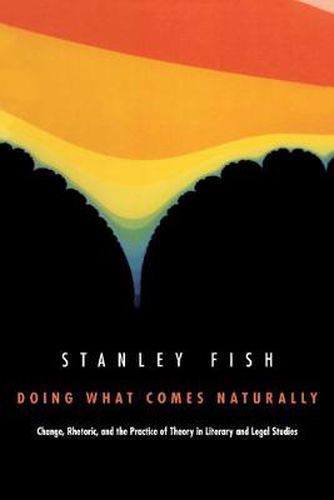Readings Newsletter
Become a Readings Member to make your shopping experience even easier.
Sign in or sign up for free!
You’re not far away from qualifying for FREE standard shipping within Australia
You’ve qualified for FREE standard shipping within Australia
The cart is loading…






In literary theory, the philosophy of law, and the sociology of knowledge, no issue has been more central to current debate than the status of our interpretations. Do they rest on a ground of rationality or are they subjective impositions of a merely personal point of view? In Doing What Comes Naturally, Stanley Fish refuses the dilemma posed by this question and argues that while we can never separate our judgments from the contexts in which they are made, those judgments are nevertheless authoritative and even, in the only way that matters, objective. He thus rejects both the demand for an ahistorical foundation, and the conclusion that in the absence of such a foundation we reside in an indeterminate world. In a succession of provocative and wide-ranging chapters, Fish explores the implications of his position for our understanding of legal, literary, and psychoanalytic interpretation, the nature of professional and institutional culture, and the place of reason in a world that is rhetorical through and through.
$9.00 standard shipping within Australia
FREE standard shipping within Australia for orders over $100.00
Express & International shipping calculated at checkout
In literary theory, the philosophy of law, and the sociology of knowledge, no issue has been more central to current debate than the status of our interpretations. Do they rest on a ground of rationality or are they subjective impositions of a merely personal point of view? In Doing What Comes Naturally, Stanley Fish refuses the dilemma posed by this question and argues that while we can never separate our judgments from the contexts in which they are made, those judgments are nevertheless authoritative and even, in the only way that matters, objective. He thus rejects both the demand for an ahistorical foundation, and the conclusion that in the absence of such a foundation we reside in an indeterminate world. In a succession of provocative and wide-ranging chapters, Fish explores the implications of his position for our understanding of legal, literary, and psychoanalytic interpretation, the nature of professional and institutional culture, and the place of reason in a world that is rhetorical through and through.